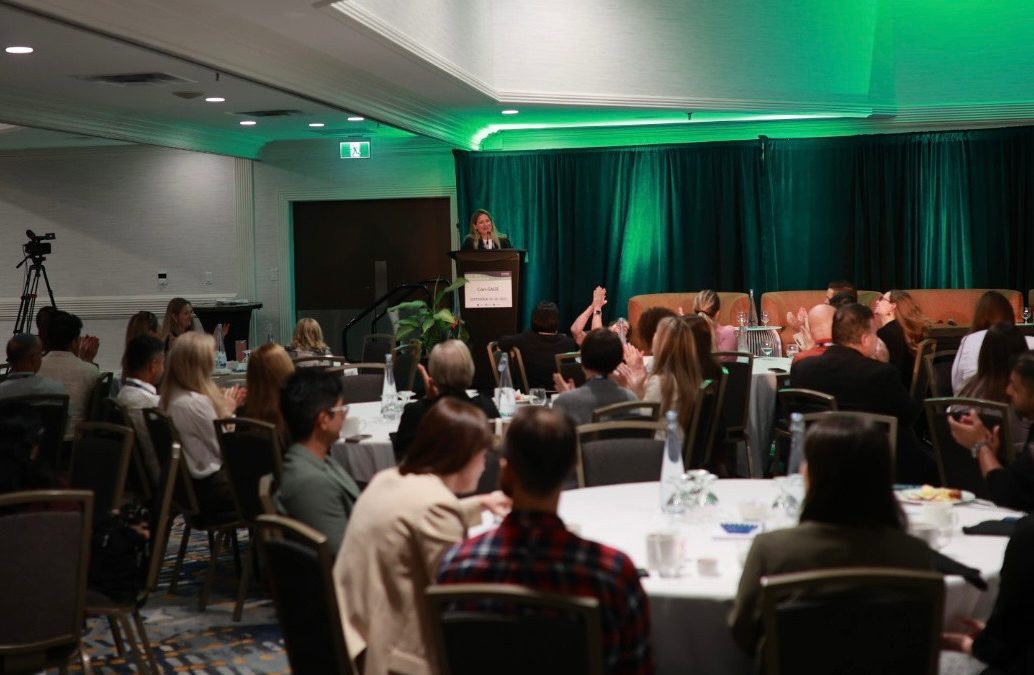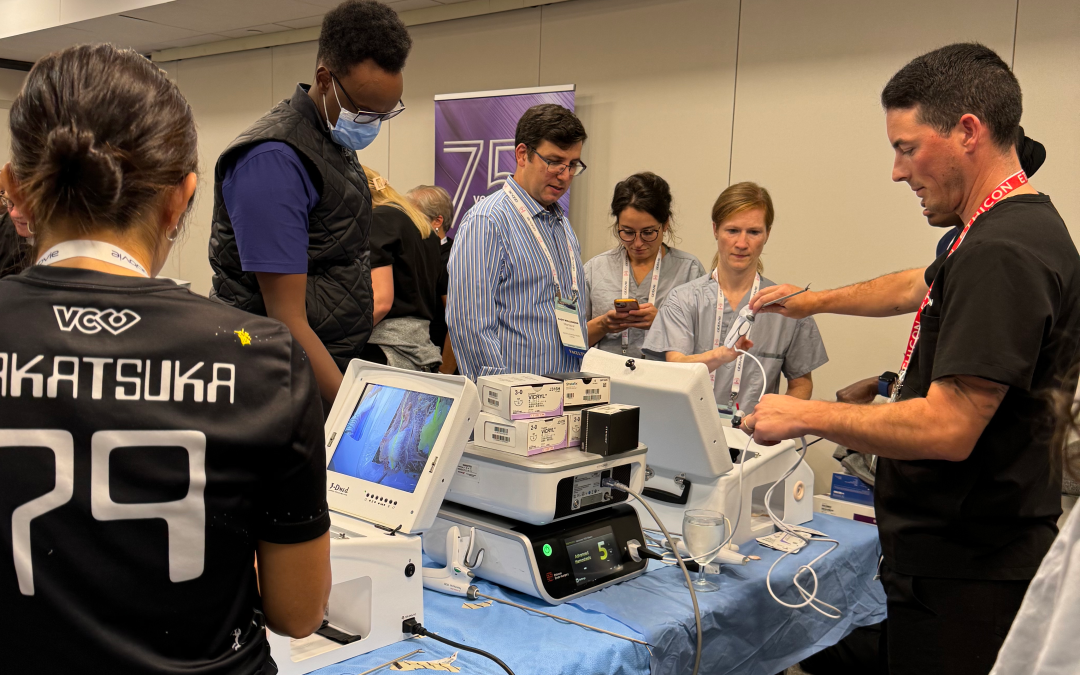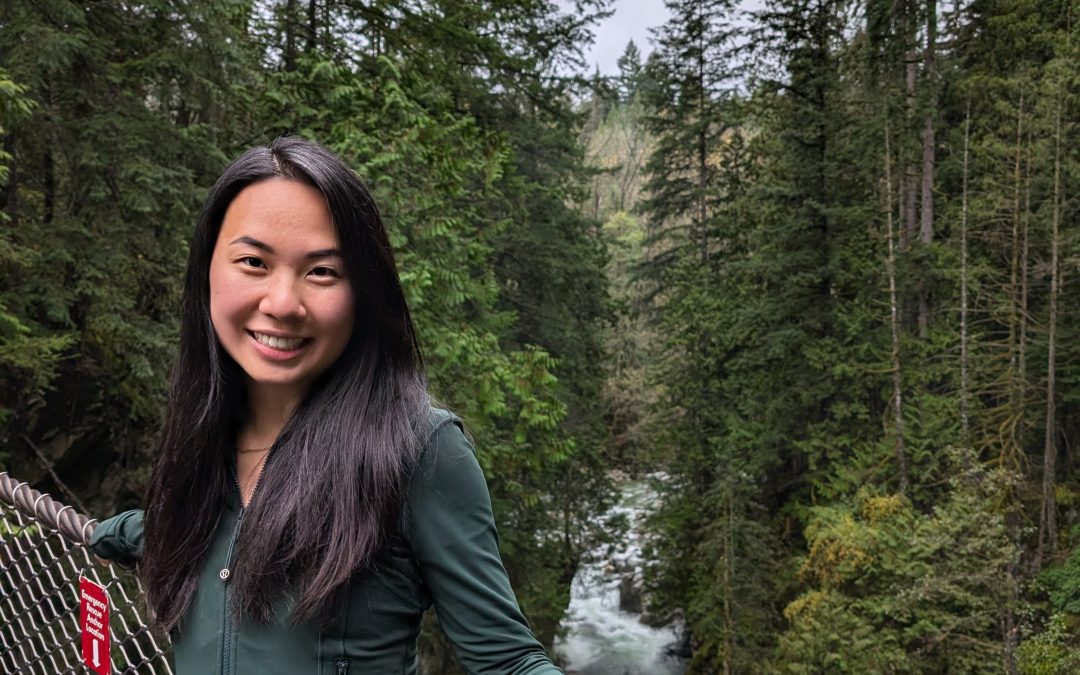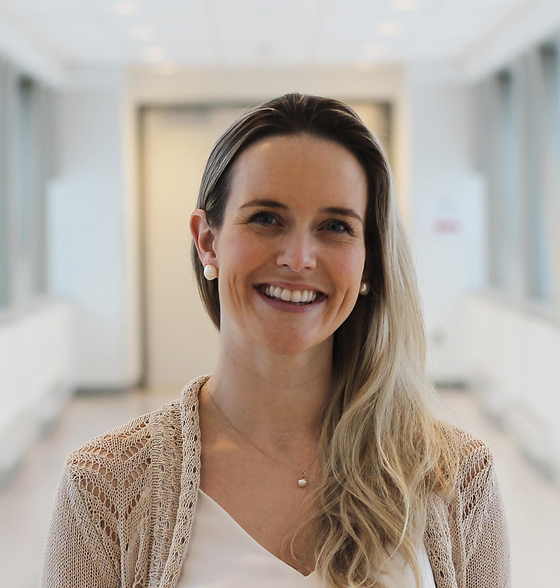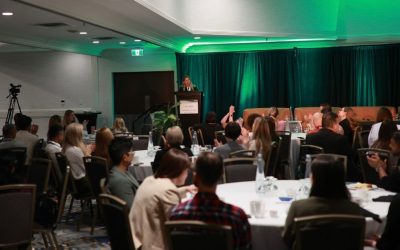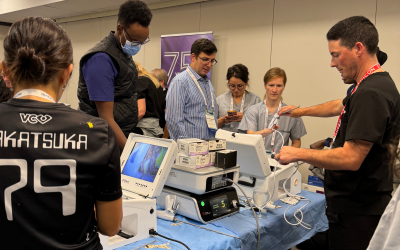Can you tell me a bit about your path to this career?
I’m from Montreal and did all of my schooling, including medical school, in French. When I applied for residency, it was important to me to do it only in English. I didn’t speak English, and I thought that if I want to read the literature or continue on and do a fellowship, I would need to learn it. I chose to move somewhere where everyone spoke English only. I applied everywhere across Canada, including Newfoundland. I flew in for an interview – there was a huge snowstorm, so I hung out for three days with the residents, went to a few social events and walked around the jelly-beans houses. People were extremely kind, and I really liked the crowd. They didn’t speak French, and I couldn’t speak English, but I had so much fun! I was convinced that this is where I wanted to go.
Because I couldn’t understand a word that people were saying, my first three months of training were very difficult, but you learn really quickly when you’re completely immersed. As a resident, very eager to learn and discover, my residency program was very supportive and gave me lots of freedom to travel nationally to do electives. I felt very supported, and it allowed me to blossom.
What led you to pursue a fellowship in MIS?
My inability to accept ‘’you can’t do it!” My answer to this has always been ‘’Then show me!’’
I wanted to be comfortable with the anatomy and able to know how to operate around the ureters and the bowels. I didn’t want to rely on urology or general surgery all the time. I wanted to know how to troubleshoot and push myself to get more done by laparoscopy. I wanted to do it all (almost!).
I knew I wasn’t going to get that from residency alone, so I decided to do a fellowship in minimally invasive surgery. In December 2014, I sent emails to Dr. John Thiel and Dr. Darrien Rattray in Saskatchewan to go and do an elective with them and an email to Dr. Liane Belland to apply for fellowship (there were no matches back then!) While I was in Saskatchewan, I flew over to meet Dr. Belland and Dr. Lo and they offered me a fellowship. So that’s how I decided to do MIS.
Very shortly after I started that fellowship, only a few months in, I knew that I wanted to learn even more, including how to do bowel surgery. There was a job opportunity in Newfoundland for Gynecologic Oncology and after a few phone calls, I decided that I would do a fellowship in gyne onc afterwards.
This is just a series of events, encounters, emails, phone calls and seizing the opportunity when it presents itself. It is funny to me that I ended up doing all this… I was very much intending to be a community OBGYN when I started!
I am now about to start yet another fellowship in the fall. This time, it is an academic fellowship. As of September 2025, I will start an editorial fellowship with the International Journal of Gynecologic Cancer. There is always more to learn!
Why do you like this specialty?
I would describe myself as a surgeon first. That’s why I am so satisfied with my gyne onc training. It gave me the opportunity to do everything I wanted, from general surgery to gynecology and urology. I feel comfortable, confident and competent. Once you have that, it makes room for ingenuity to improve and start to think outside the box.
I also love the multidisciplinary aspect of my job. I have built very strong relationships with the general surgeons and the urologist. We work together on all sorts of cases and with champions in each specialty, we all come in with a different toolbox of knowledge to work together on complex cases. I have learned so much more from them over the last five years. We are, as a team, able to push the envelope even further.
I often say that I do minimally invasive surgery and maximally invasive surgery. I’m happy that I have both perspectives now. On the gyne onc side, you’re talking about life and death, so even if you must open the abdomen, you’re just going to do that because the completeness of your cytoreduction is going to make the patient live longer. But with MIS, you’re thinking about quality of life, decreased pain, and the esthetic component. I always keep both visions in my head. When I operate a big oncology case, I think about the quality of life and whether I can do it in a minimally invasive way. However, I feel that I can weigh the risks and benefits very well, understanding the possible impact on survival and/or the need of adjuvant treatment, which are also impacting their wellbeing.
One of the comments I hear people say the most about my job in oncology is – that my job must be very sad and very difficult because a lot of my patients die. I really don’t see it that way. What people sometimes forget is that these patients will likely die, with or without me. I truly see my job has a unique opportunity to make a crucial difference in the last years/months of a patient’s life. I can help them navigate this journey of cancer, make it the best it can be and advocate for them to help them reach their therapeutic goals. The type of practice I have allows me to build strong relationships with patients and their families, because I am there every step of the way: the diagnosis, the surgery, the chemotherapy and some of their palliative care.
My job is super gratifying.
Do you have any hobbies? What do you do in your spare time?
My very minimal spare time (laughs).
I’m a big runner, so I run marathons, and in 2024 I trained for my first Ironman. Running and biking are mainly what I do, with swimming on the side. Oh…and I also play hockey every week in a 50+ men’s league! I would love to say that I am an avid snowboarder and love the backcountry, but freak… I live in Newfoundland! So that is only a ‘’once in a while’’ type of activity.
When did you get started with CanSAGE? What have you gotten out of your involvement with CanSAGE?
I was there pretty much when it started. I was a baby then, but the first CanSAGE meeting was in 2016 and that is the year that I started my fellowship.
Why did I stay? Because that is a growing and evolving society. I’m also the only gyne-oncologist who’s in CanSAGE. I really want to be the bridge between CanSAGE and GOC, the two societies. It goes back to the two perspectives that I was mentioning earlier. Some gyne-onc tend to think they have nothing to learn from minimally invasive surgeons, and some MIS surgeons feels that the gyne-oncs do these huge surgeries when they could potentially do some minimally invasively. Each of them has their own vision. But I can sense that really, the two of them can work together.
I’m in a unique position because I have done both fellowships in Canada, and I am not sure, but I don’t know any other person who has. I feel that my voice could be heard from both sides.
So this is why I wanted to be on the CanSAGE board and why I wanted to be involved. The Annual Conference is going to be in St. John’s in 2027, and I’m going to be the Chair of that meeting. I would love to involve other surgical specialties – urogynecology and gyne oncology.
I’m hoping to break down those biases and barriers and see what we can do together.


